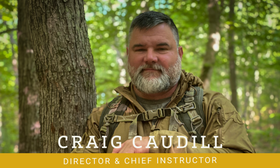Three processes of risk management – Three Answers to the problems that arise
 As the director of a professional school that teaches outdoor recreation, there are many aspects of our responsibility to our students, clients and followers that are never known to the classes we lead. One of those aspects is risk management. The following principles could easily apply to any profession, business, or group that is in need of taking care of problems before they arise. The following list, details but a few of those who would benefit from having their own risk management plan.
As the director of a professional school that teaches outdoor recreation, there are many aspects of our responsibility to our students, clients and followers that are never known to the classes we lead. One of those aspects is risk management. The following principles could easily apply to any profession, business, or group that is in need of taking care of problems before they arise. The following list, details but a few of those who would benefit from having their own risk management plan.
- Robotics engineering firm, putting out their first robotic assembly line technology
- Outdoor Recreation Group taking novice outdoors people on a weekend survival class.
- A church hiring a new youth pastor.
- School biology teacher taking kids on a field trip to a working farm.
As you can see each of these situations would benefit greatly from developing their own risk management assessment. This assessment is going to consider three separate but equally important aspects:
- Identifying possible problems.
- Analyzing these problems in detail.
- Developing answers and contingencies to these problems
The key to the any risk management plan is to to develop it early and to consider it a work-in-progress throughout the life of the project, trip, or endeavor. For example at Nature Reliance School, we have a plan and we discuss it at the beginning each course that we teach. Some of this information is gathered before the trip ever begins (experience of participants, medical needs) and some of these are explicitly stated at the beginning of each course. At the beginning of each class we lead, we have a safety brief. In it we explicitly state the two things that come up in training such as ours (knife safety, and getting lost) as well as many others. We address these issues with our students and make sure that everyone knows how we will handle those situations.
The key to insuring that your organization does not expose itself to too much risk is again, three fold:
- Train beyond the needs of what you “think” you will encounter.
- Anticipate and react early to situations that are starting to arise.
- Create contingency plans for all aspects of the plan.
We train beyond our needs which will help us keep calm under stress. We learn the science of heuristics and how to do so quickly. Doing so allows us to anticipate these problem before they occur (example – recognizing in a survival class that someone is not getting adequate sleep and will therefore possibly be making poor decisions). The critical consideration in all this is the idea of contingency planning. You do not want to be in a situation where a participant has broken a leg, go to get the extract vehicle, and find the battery dead without a contingency.
I absolutely used examples of consideration from our class structure for two reasons. One, for those considering training with us, we want you to know that while we will sometimes push you to your limits, we also consider your safety very important to us. Two, for everyone else who sees this you can probably easily take our example and apply them to your work.
You should be able to ask any professional organization what their risk management plan is. If they do not have any idea what you are talking about, it would be our suggestion you find a more professional trainer/facilitator.
As always we hope you come on, join in, let’s learn together!
Check out our hands-on courses at the following link: https://www.naturereliance.org/events



Leave a comment